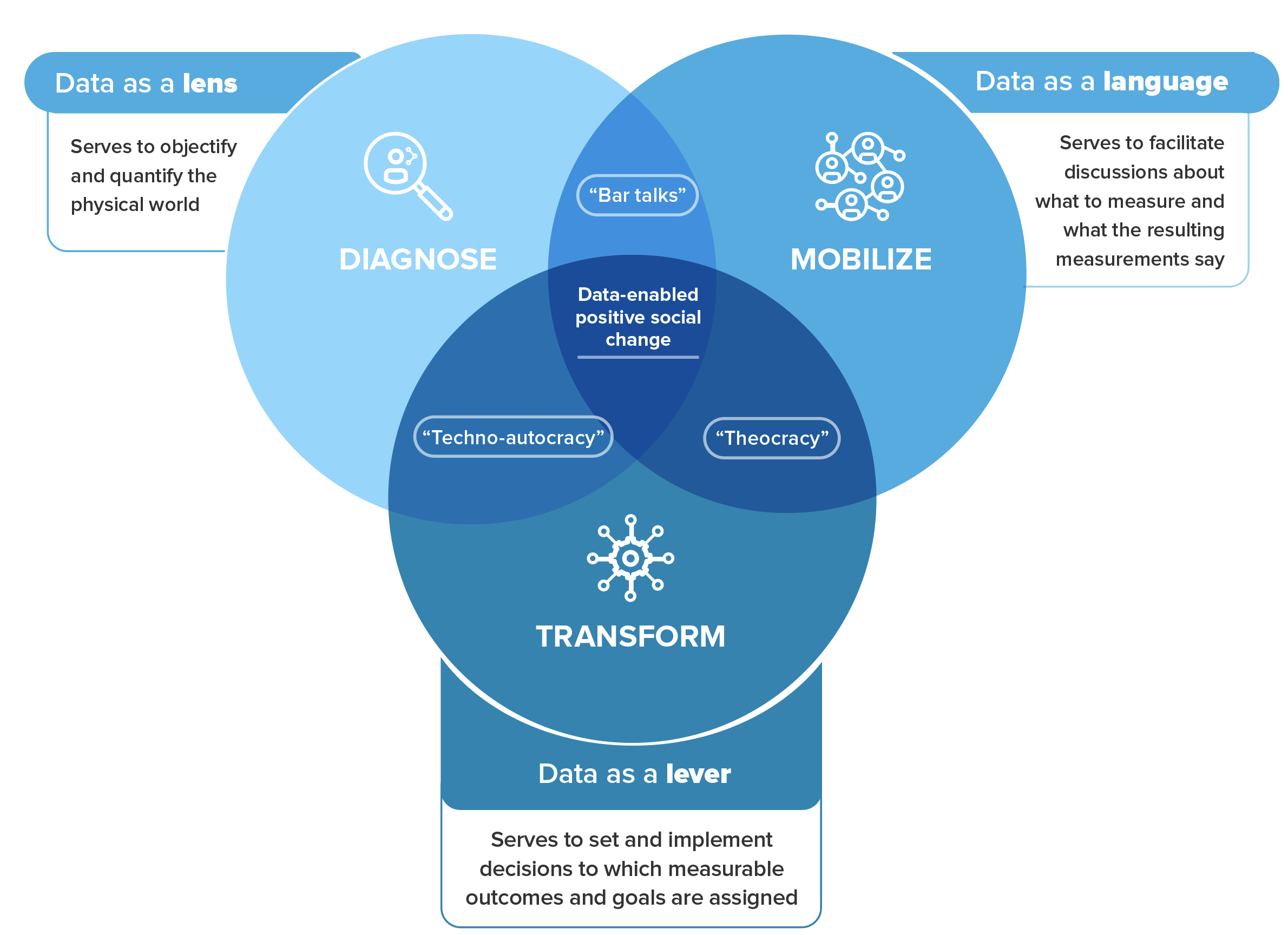PILLARS OF WORK
- DIAGNOSE
- MOBILIZE
- TRANSFORM
In the “data deluge” era, where data is abundant, knowledge continues to be scarce and unevenly distributed across regions of the globe. At the same time, data offers a lens through which to capture and address complex human problems. Leveraging the unique strengths of our founding institutions and network, DPA works to diagnose local realities using innovative data and technologies to create actionable insights, for and with our partners on the ground.
Methods and Approaches
• Mixed-methods research leveraging traditional and non-traditional data
• National, institutional, and gender assessments
• Ecosystem approach to disinformation
To learn more about how we implement this pillar across our work, visit our Publications page.
The COVID-19 pandemic has highlighted global gaps in awareness, incentives, networks, and skills to use data as a common language to make better collective decisions. Through trainings, policy and strategy workshops, conferences and CODEs we aim to strengthen data capacities and ecosystems to craft a better common future.
Methods and Approaches
• In-person/online trainings and workshops
• Conferences and public speaking engagements
• Eureka’s thematic cycles
• Councils for the Orientation and Development of Ethics (CODEs)
To learn more about how we implement this pillar across our work, explore our training offer.
We seek to build a world where data and technologies are used as levers to yield and implement better collective decisions for citizens, communities, and the planet. We help design and deploy data strategies, systems, and tools that support just, ethical, and sustainable human-centered —and societal— transformations.
Methods and Approaches
• Digital maturity assessments
• [Data] action plans, pilots and proofs of concept
• Monitoring, evaluation, accountability and learning (MEAL) mechanisms
• Advanced data modeling
To learn more about how we promote these transformations, explore the projects under each of our 6 Thematic Programs.
FUNCTIONS OF DATA
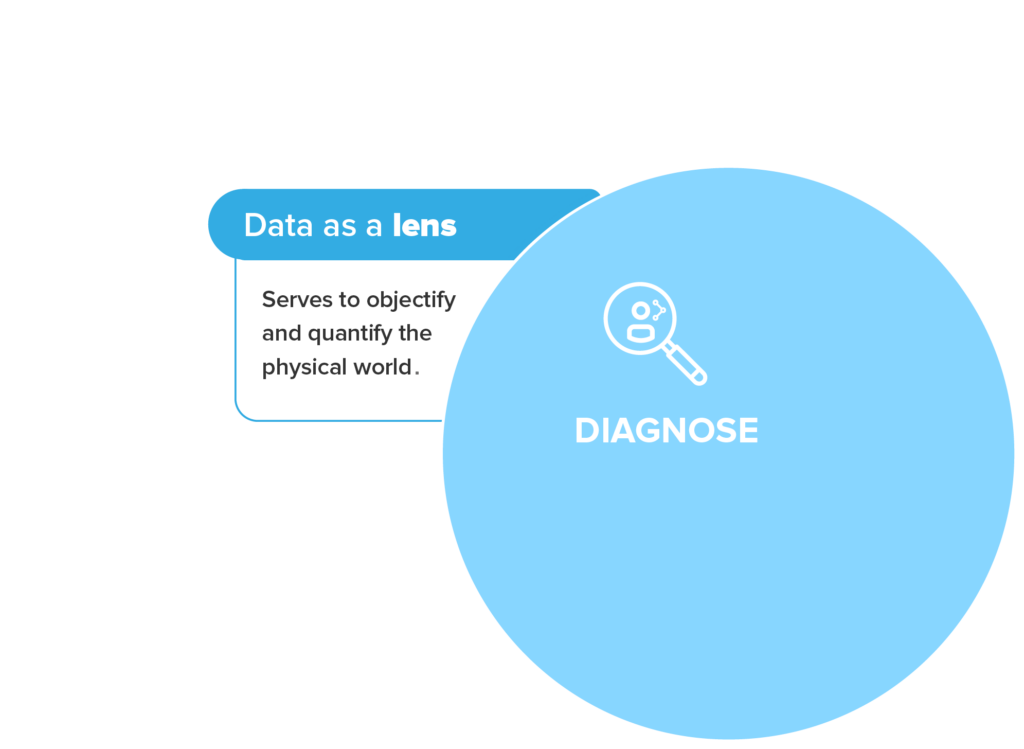
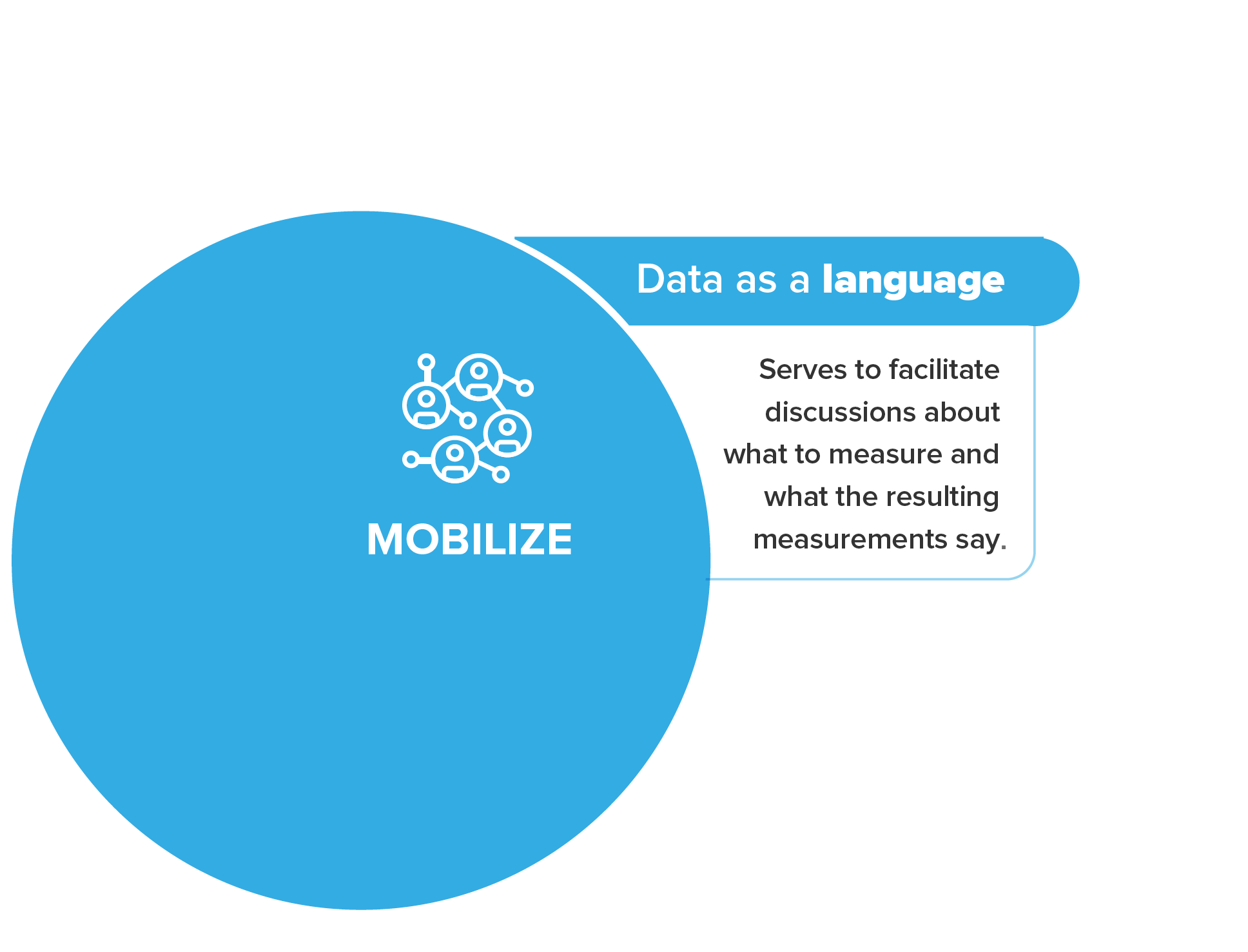
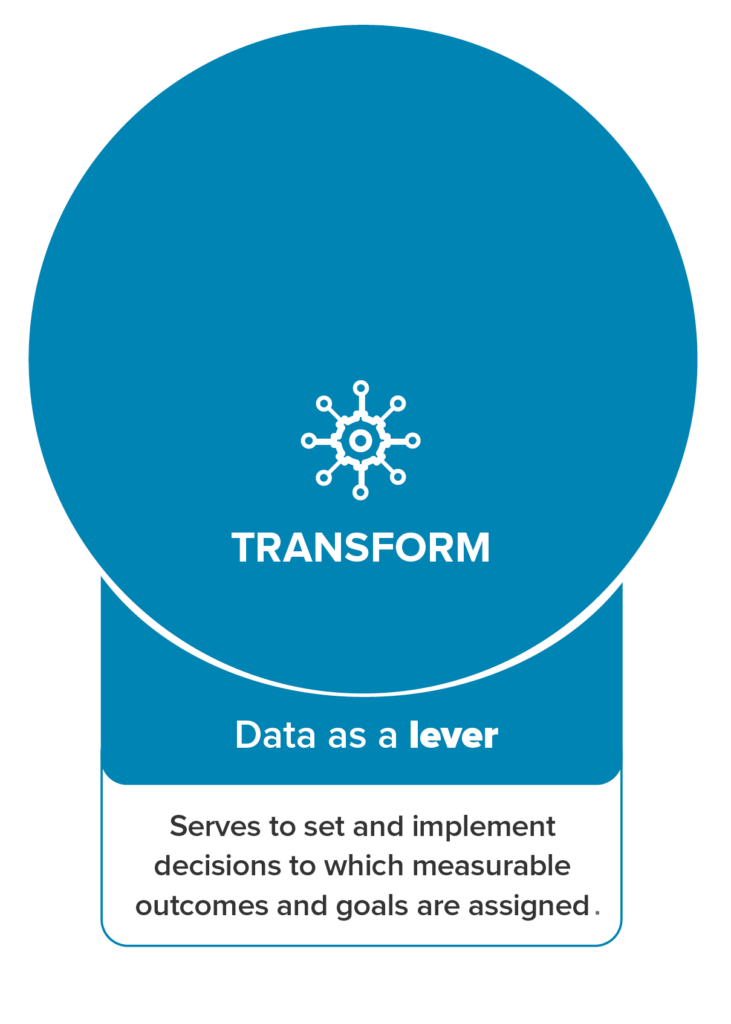
Society is willing and able to discuss insights gained from data in a rational manner, with no power to implement changes.
At the intersection, data are used to objectify and quantify the natural world (data as lens) in ways that are conducive to and result from public discussions about what is worth measuring and about what the resulting measurement implies (data as language) that lead to decisions to which measurable outcomes and goals are assigned (data as lever), which in turn are subject to measurement (lens) and discussions (language). This process is iterative, non sequential, and helps human systems move along the learning loops.
“Bar talks”
Society is willing and able to discuss insights gained from data in a rational manner, with no power to implement changes.
“Theocracy”
Discussions and decisions take place that are not rooted in facts.
“Techno-autocracy”
Decisions take place that are rooted in facts, but facts and decisions are not subject to any discussions.
Data-enabled positive social change
At the intersection, data are used to objectify and quantify the natural world (data as lens) in ways that are conducive to and result from public discussions about what is worth measuring and about what the resulting measurement implies (data as language) that lead to decisions to which measurable outcomes and goals are assigned (data as lever), which in turn are subject to measurement (lens) and discussions (language). This process is iterative, non sequential, and helps human systems move along the learning loops.

